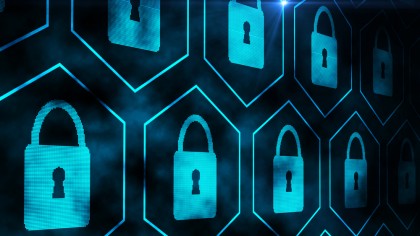FBI says Apple's new encryption launch is "deeply concerning"
Apple's new updates aren't for everyone

Apple recently introduced a number of new privacy-oriented features aimed at better protecting user data stored in iCloud, but while privacy advocates and human rights groups have hailed the move, law enforcement agencies have voiced concerns.
Apparently, they’re not against improved privacy, but instead fear criminals of all walks of life might abuse the privilege.
In an emailed statement sent to the Washington Times, the FBI said Apple’s end-to-end encryption “hinders our ability to protect the American people from criminal acts ranging from cyber-attacks and violence against children to drug trafficking, organized crime, and terrorism."
Trade-offs to security
"In this age of cybersecurity and demands for 'security by design,' the FBI and law enforcement partners need 'lawful access by design.'"
At the same time, former FBI official Sasha O'Connell spoke to the New York Times, saying there are caveats that need to be kept in mind. "It's great to see companies prioritizing security, but we have to keep in mind that there are trade-offs, and one that is often not considered is the impact it has on decreasing law enforcement access to digital evidence."
Apple has introduced a number of new security-focused features recently, including iMessage Contact Key Verification, Advanced Data Protection for iCloud, and Security Keys for Apple ID, and it’s the Advanced Data Protection for iCloud that really struck a nerve with the FBI. The new feature means the data stored in iCloud will have end-to-end encryption, allowing only trusted devices to decrypt and read the data.
In other words, not Apple, nor anyone else, will be able to access Apple’s servers and view whatever data users have stored in iCloud.
Are you a pro? Subscribe to our newsletter
Sign up to the TechRadar Pro newsletter to get all the top news, opinion, features and guidance your business needs to succeed!
This is not the first time the FBI has had a run-in with Apple. Roughly six years ago, the FBI confiscated an iPhone device belonging to Syed Farook, one of the two perpetrators of a terrorist attack at the Inland Regional Center in San Bernardino, California. On December 2, 2015, the two murdered 14 people and injured 22 more.
The iPhone was locked, prompting a major battle between the FBI and Apple, who claimed it had no means, or desire, to unlock the endpoint. The dispute even made it to the US Congress, with almost all tech companies in the country siding with Apple. The whole thing died down when the FBI finally managed to unlock the device, with the help of a third party. The media later reported that the third party in question is an Israeli mobile forensics firm, Cellebrite.
- These are the best firewalls around
Via: MacRumors
Sead is a seasoned freelance journalist based in Sarajevo, Bosnia and Herzegovina. He writes about IT (cloud, IoT, 5G, VPN) and cybersecurity (ransomware, data breaches, laws and regulations). In his career, spanning more than a decade, he’s written for numerous media outlets, including Al Jazeera Balkans. He’s also held several modules on content writing for Represent Communications.